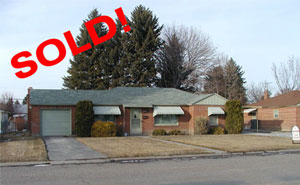
Today I woke up a bit woozy on my last day of vacation in Boston with my family. I picked up the complimentary copy of the _Boston Globe_ outside my hotel room door and, _being of the real estate persuasion_, scanned the business section for real estate related articles first. I didn’t have to go far because a real estate story had the lead in the business section: [Sellers literally put homes on the block [Boston Globe]](http://www.boston.com/business/articles/2006/03/14/sellers_literally_put_homes_on_the_block/?page=full). I figured that this article will be [covered by many others [Walkthrough]](http://walkthrough.nytimes.com/?p=432) better than I can and the premise of the coverage would be as follows:
* Home auction increase in popularity signifies a weak housing market
* Sellers that are desperate can use this as a tool
* It presents an opportunity for buyers to find properties quickly
* People can get hurt in the process
_But what price does submitting a property to auction really achieve?_
Well first of all, auctions are most commonly used to dispense real estate assets in large quantities and tend to succeed in investor-heavy markets. The commissions can be as much as 10% of the purchase price. They can be more commonly used as a marketing technique during a weaker housing market in order to differentiate a property from the growing competition.

_Some observations and guesstimates about auction properties:_
* Many of the properties were overpriced on the open market before they went to auction (this drives me crazy)
* The auction properties commonly have some sort of physical defect (this can be a hidden but significant cost)
* The auction properties have unrealistic sellers who need to get their price (a last ditch way to get a price that the open market couldn’t)
Auctions are not the panacea for buyers and sellers in the current market because an auction is simply a shortcut to move a property faster than existing conditions permit. The shortcut comes with a cost. If a seller actually gets their price from any of the above scenarios, then I’d chalk it up to an inefficient market, namely the buyer bought it blind.
_Here’s how an auction price compares to a market price_
When a real estate property is placed on the market in the traditional way – listed for sale with a broker – there is a relationship between the time it sits on the market, and how close the list price is to its reasonable value.
If the market is rising, the over listed property will eventually be caught by the market (although many of these sellers may decide to raise their asking price to another unrealistic level and the same thing happens again) and get offers to purchase.
But what happens when the market is not appreciating or begins to decline? The property could sit indefinitely until the seller’s resolve weakens and the price is dropped. An auction _reduces the marketing time_ that a property needs to be exposed to the market. That is the discount usually associated with auctions.
_In other words, the price achieved in an auction:_
* In a rising market — reflects a discount for the accelerated marketing time (which technically is not a discount) since you are selling the property sooner than the market can absorb it or rise to it.
* In a flat or falling market – reflects a discount for differentiating the property from competition. The primary reason properties do not move or move more slowly in bloated inventory conditions is that the buyer has more choices. By dropping the price, the property is differentiated from its competition.
Auctions can be effective given the right circumstances, _but lets be honest about the ultimate price achieved_…its not market value unless all sales in that market are sold at auction.

